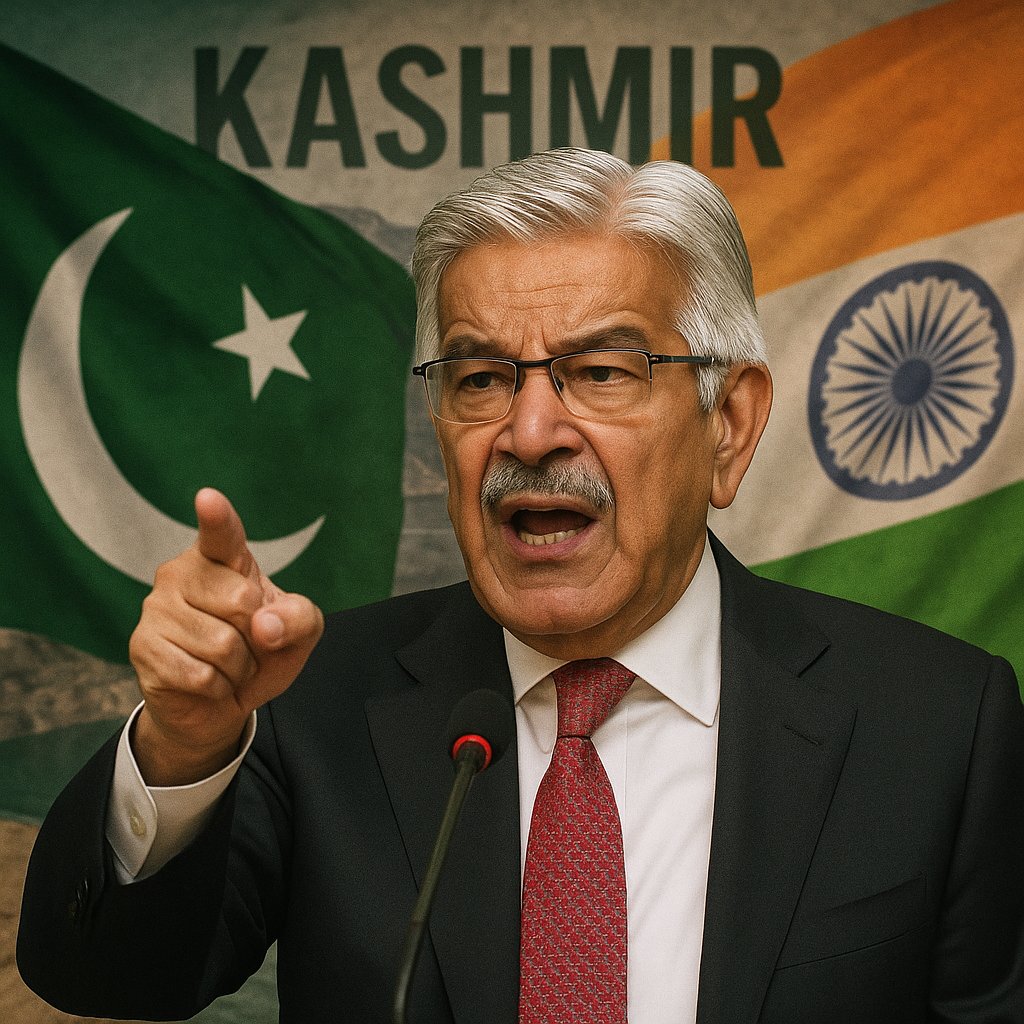A Strong Warning from Pakistan
Pakistan’s Defence Minister, Khawaja Muhammad Asif, has made a serious and strong statement regarding the Indus Water Treaty. He warned that if India builds any kind of structure—like a dam or water storage facility—on the Indus River, Pakistan will treat it as an act of war. He even said that Pakistan could strike first if needed.
This statement has caught the attention of many because it is a direct threat of military action. The minister said that if India builds anything on the Indus River, Pakistan will strike that structure. He added that any such construction by India would be aggression against Pakistan.
This is not the first time that Khawaja Asif has made such statements. In the past too, he has called any changes to the Indus Water Treaty an “act of war.” His repeated threats show how serious Pakistan is taking India’s latest actions concerning the treaty.
What Is the Indus Water Treaty?
India and Pakistan signed the Indus Water Treaty in 1960. The World Bank assisted in the deal to share the waters of the Indus, Jhelum, Chenab, Ravi, Beas, and Sutlej rivers. The pact gave India authority over the three eastern rivers, the Sutlej, Beas, and Ravi.
The three western rivers—the Indus, Jhelum, and Chenab—belong to Pakistan.
For over 60 years, this treaty helped avoid conflicts over river water, even during times of war. It has been seen as a symbol of cooperation between the two nations despite their difficult relationship.
However, the Indus Water Treaty has just been suspended by India. Although India has not yet built any new dam or water project, this move alone has triggered a strong reaction from Pakistan. Officials in Pakistan, including Khawaja Asif, are treating it as a major threat.
Experts say that India has not yet started any project to divert or stop the flow of the Indus River’s water. There is no known master plan or construction activity on the ground. But Pakistan’s leaders believe that India’s decision to suspend the treaty is a step toward controlling the river, which flows from India into Pakistan.
Political Tensions Behind the Statement
Khawaja Asif’s aggressive words may also have political reasons behind them. Making harsh remarks about India is nothing new in Pakistan. In fact, it has become a common political strategy over the years.
In Pakistan’s politics, raising the issue of Kashmir, India, or the Indus Water Treaty often helps political parties attract public support. Leaders from different parties use strong language against India to unite their supporters and increase their influence.
At present, Pakistan is facing deep political divisions. There are power struggles between parties like Imran Khan’s party and the ruling coalition led by Shehbaz Sharif. In this environment, issues like the Indus Water Treaty become useful tools for political leaders to divert attention and gain popularity.
Khawaja Asif, the Defense Minister of Pakistan, is one such leader who has made aggressive statements against India over the Indus Water Treaty. By doing so, Khawaja Asif aims to rally nationalist sentiments and strengthen his political standing amid ongoing internal tensions.
There are other parties involved besides Khawaja Asif’s. Other leaders are also making similar statements to stay in the spotlight. These statements aim to rally public emotions, especially when the country is dealing with economic pressure, political instability, and internal disputes.
Experts believe that Khawaja Asif’s warning is not only about water but also about making his political stance stronger. By calling India’s actions aggressive and threatening to strike, he is trying to boost his image as a strong and bold leader who defends Pakistan’s interests.
This latest warning over the Indus Water Treaty highlights how sensitive water issues are between India and Pakistan. Even though no actual construction has started, Pakistan’s defence minister has made it clear that any future activity will be met with force. While India remains quiet on what steps it will take next, Pakistan’s sharp response shows just how serious the issue has become on the diplomatic and political front.

